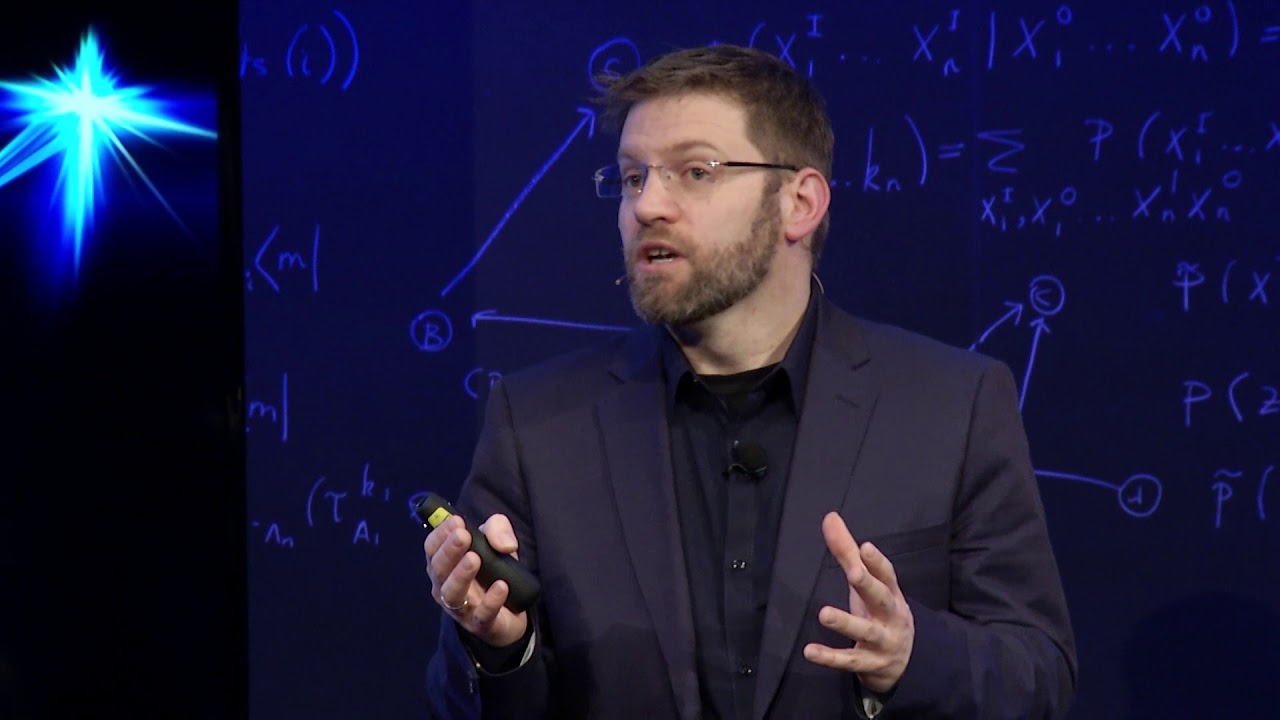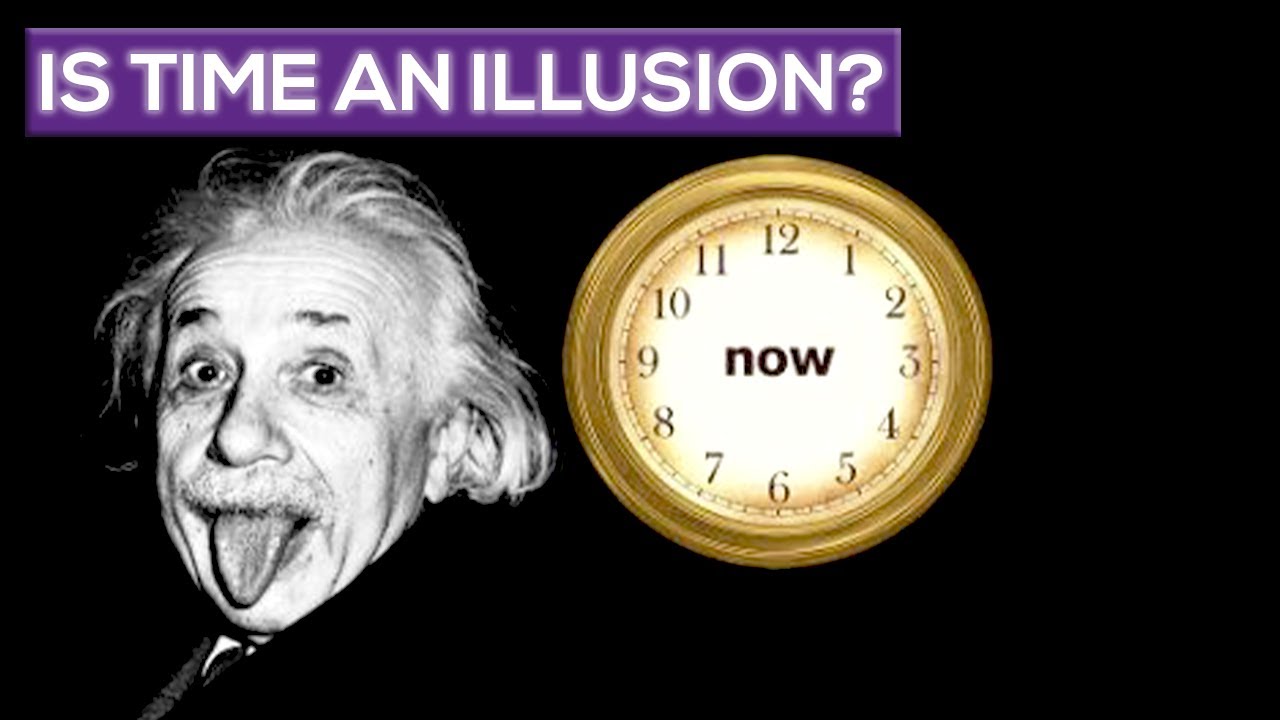Perimeter Institute for Theoretical Physics
In his Feb. 7 public lecture at Perimeter Institute, Robert Spekkens will explain why he believes that many quantum mysteries are a result of a category mistake concerning the nature of quantum states.
Watch more Perimeter public lectures: https://insidetheperimeter.ca/video/public-lectures/
Source



Impressive. I like the emphasis on causal structure and the hint of information, disguised as probability. May be worth looking up work of Judea Pearl and Ron Garret too.
As a former stammerer who as a child could sometimes hardly get a word out, and subsequently managed to give presentations at conferences, I am disappointed that modern speakers seem to have adopted the affectation – for that is what it is – of saying 'er' every other word. Speakers – please do view your own presentations!
This guide to sudoku is very comprehensive 🤔
He was so close to saying couinciounes..but felll short by the term was knowkedge of reality. This is 3rd lecture & materialism is a true misconception of reality
quantum queff is my new handle.
Featured in the top 10 videos of the day on walnut.tv/science
Skip the sudoku analogy and start at 14:00 for quantum mechanics.
Thanks for making such a weird subject a little more comprehensible. Nice talk.
Found that I couldn’t watch this after a while, because all I could hear was ‘err..ummm..err’ every few words.
At 6:40 was totally expecting Irving Finkel to leap onto the stage and shout this man to death.
This man proves that thought travels at the speed of light!
A fascinating talk. If quantum state is a category mistake, what happens to classical state (and trajectories and orbits in a phase space) as used in state space models of dynamical systems? I have been trying to study how to model certain cognitive systems using some kind of generalized state space (technically, as objects and morphisms in a star-autonomous category). Spekkens has co-authored an article with Bob Coecke, who writes on both quantum foundations (e.g. Categorical Quantum Mechanics with Samson Abramsky) and cognitive-linguistic models, arguing that some of the mathematical structure of, for example Feynman diagrams and Penrose string diagrams of quantum interactions (not related to string theory) are similar to pregroup grammars as developed by the category theorist Joachim Lambek for modeling natural language. I am not sure how Spekkens work might relate to cognitive systems, but going beyond Bayesian probability could be quite relevant. And his comments about Clifford groups makes me wonder about Clifford algebras, quaternions, the unitary group SU(2), and quantum groups more generally.
He still did a good job 👍 He just isn't a great speaker.
Feynman said what this kid said and it only took two minutes.
It started off promising but it all went a bit meh.
This is the kind of lecture you sincerely don´t watch. after 20 mins in i find myself not even understanding what the lecture is really suppose to be about. The level of people who get a chance to give a lecture is way to high compared to the level of people who can actually explain the given material properly . Choose more carefully next time
I think "Spooky action at a distance" really is a result of the possibility that changes for elementary particles happens in another dimension , the 6th to be exact ! This dimension is (as I understand) the "RIFT"-dimension which separates matter/antimatter !
GREAT!!!!!!
consensus will require making things simpler, not more complicated 🙂
this is a very old idea.
I thought he said his name was "great dick" 0:47 I need to clean my ears out lol
Wow, this is a very good explanation of quantum state!!!
The Copenhagen type interpretations of quantum mechanics were invented to try to explain some results of particle 2 slit experiments. In my video, “Particle 2 Slit Experiments Explained By Paul Marostica”, I offer an alternate, simple, physically logical, field theory explanation of these results. If my field theory explanation is physically logical, then the Copenhagen type interpretations of quantum mechanics explanations are all physically illogical, which explains why no 1 understands them. I think it is critical to determine which explanation, if either, is correct. So I invite all viewers of this video, and especially Robert Spekkens and every 1 at the Perimeter Institute for Theoretical Physics, to view and comment on my video. Should any of you find my video convincing, or just interesting, then I would also recommend you view my videos, “Quantum Mechanics Intervention”, and “You’ve Learned Relativity Theory”. There is no math in any of my videos.
Best talk on this topic I've ever seen.
Yes correct the mistake was made by Einstein based on the Michelson Morley experiment specifically. The red shift is wrong as well as our understanding of the speed of light
This lecture should have been called : HIDDEN VARIABLES 2.0, or Hidden Variables revisited.
It is nothing short of hypocrisy EVEN NOT TO MENTION this ONCE in the whole of the lecture.
Spekkens does not want to deny Einstein's “nothing can go faster than light” but this comes at the expense of denying the HUP (Heisenberg Uncertainty Principle). The latter can be written as “Mass*Speed*Distance >= hbar/2”. If you put the lightspeed constraint on the “speed” factor in the HUP you are denying the HUP itself. There is a way of looking at this, that solves the conundrum, and it basically solves the “HOLY GRAIL of PHYSICS”, the unification of GR and QM. Mr Spekkens can contact me at koen DOT notime [AT] gmail DOT com or leave a message on my youtube channel. But that will never happen as he has invested so much in his hidden variables, it becomes a “sunk cost fallacy”.
I would’ve left after ten minutes before I went crazy. Fifteen “Uhhs” in three sentences and you loose credibility.
Audience = required participation state
Following the thought … if the problem is join 3D (the positions) with 2D (the knowledge) is a geometry problem. So, if we have a sphere we need PI. Add PI to PSI. Dont have any clue of the outcome but its only a thought….
roger mother goose tadpole and pigeon egg thmus die/dye mister bound. Manly p hall man grand symbols of the mysteries. decimus junus juvenalis juvenile gene. nile furthest indo aryan sound true looking good god. spooky nucleation pyrite alien messangers hexagonal cubic comet. isquare fibonacci .need that changed base planet earth. cirlot underhole. erh ya. archimedes quadratura circuli inside outside circumference circle . intrinsic extrinsic symmetry broken symmerty a-symmetry who's who watt's watt' polarity dr harold saxton burr the egg symbol of world egg the phanes orphic egg. great base material. [&7] amperdsand am+pussy am+passy sand hour glass [*8] number theory eight thx carl jung symbols of transformation agni/ignatius. gayomart 6000 years ago ect soma Eucharist fire water. number theory 0~9. schrodingers cat box medical problems thymus die/dye mister bound. cast systems die cast. dichotomy i&e mathematics imago dio imago dei. genetic malfunction watt a man classic four. spooky sunny storm climate science tracy's of L-ove. marcus pythagoras. yep leibniz selections table of content language logic set theory ext. leibniz selection phd. lovejoy.
Unfortunately, in the summary at 1:04:00 he totally misses the point.
It is the data (in particular the fact that it contradicts Bell's inequality) that leads to the conclusion that there is a "spooky action". You do not need quantum theory to (derive Bell's inequality, look at the data, and) conclude this. Therefore, the problem cannot be solved by changing the "interpretation of the quantum state", because you do not even need to know what this is to "see" the spooky action.
Interestingly, he uses a similar kind of fallacy as described earlier in the talk. The facts are:
(1) The assumptions that information cannot travel faster than light and that the (probability distribution for the) outcome of a measurement is a property of the object on which the measurement is carried out implies Bell's inequality.
(2) The experimental data contradicts Bell's inequality.
(3) The experimental data is predicted correctly by quantum theory.
(2) implies that at least one assumption made in (1) is false, which implies that either infomation travels faster than light or something even more spooky influences the choice of the operator which measurement to make. None of these arguments uses or relies on quantum theory. It could have been derived in 1900 if someone made such an experiment (for whatever reason). (3) is logically completely independent of (1) and (2).
At 49:00 (after distracting for 10min with this Clifford stuff and his baby) he got it almost right, but still missed the cruicial point: Bell has shown that the if you assume the causal structure as shown in the graph on the right, then the statistical data shown in the table on the left is impossible. Period. Again, no quantum theory here. His statement is logically correct, but the additional assumption "… and assume that the quantum state blah blah…" suggest that the statement becomes wrong if you drop this. It doesn't. And therefore, even if you replace quantum theory by something complete different, the spooky action will not go away. It might become less spooky within a better theory, but this theory then has to modify other theories as well, namely those that are used in (1), e.g. relativity.
To prove exactly this was the contribution of Bell. The Bohr-Einstein debate would have proceeded very differently if Bell did it twenty years earlier.
A third option: A measurement reveals neither the quantum state of the measured object nor the state of our knowledge of the object's quantum state. It instead produces a result determined by the entanglement of the measured object with the measurement device. The choice of which measurement to take determines the nature of that measurement device's entanglement with the measured object (and any other entangled objects).
Video starts at 3:10
[1] Category Error:
If you ask the wrong question, you might get nonsense as an answer.
[2] Career Choice:
If you follow the crowd, you end up waiting in line.
Most boring sci-speech I've listened to yet. I am falling asleep.
I'm sure it's amazing stuff, I'm just not smart nuff to understand why it's relevant. Please don't hate me, I'm a fellow liberal. I like social care handouts for the lazy who won't hold jobs just as much as you do! Their right to smoke pot and get drunk all day on tax payer money matters a LOT to me, being a liberal commy SJW BLM LGTBQABCXYZ123@!# snowflake.
CNN! PLEASE SAVE US FROM FAKE NEWS!!!
Robert Spekkens – Thank you so much for this lecture. You have articulated perfectly something I have been trying to say to friends for many years. Nothing spooky, no hocus pocus necessary.. Awesome talk..
Billy Connolly in audience at 14.34 ?
This was a pretty good talk. Why were so many people falling asleep?
I challenge anyone to give an accurate final "uh" count
This is the least dense, dense lecture Ive ever seen. I'm sure this guys mind works very well when he's not talking, but fuck man this lecture is like a song that stops, starts the intro again, skips around and then keeps going at some point where you have to reorient yourself as to what's actually going on, then the intro starts again and the skipping, and it goes on. This dude is a bad lecturer, but obviously not a bad mind
keyphrase: epistemology v ontology. decent lecture. gripe: should have mentioned Bayesianism by name! [ok i retract that – at 52:00 you've done that] and terminology – priors, likelihood [no need to go into cox's theorem]
I like the parallel between the search to understand Egyptian hieroglyphs and quantum theory….I'll go so far as to say we have another parallel here….Jean Francois Champollion and Robert Spekkens
Caught by the camera.. and only an hour to go, I wonder if he made it to the end? 11:50 🙂
Wow!
I was always wondering if there is a science that checks the validity and how correct our theories are, so awesome.
A lot of bald dudes in the audience, nice.
its a good well organized lecture but it has no answers. He tries to tie quantum understanding of the true nature of reality to the action of human consciousness (implying there is no universe and no external reality if nobody is conscious to observe it) the overall task is just too herculean……but he spoke well and got the first shovelful of sand off the beach in his attempt to expose the bedrock underneath
How about the possibility that the drug is completely useless or makes some people worse. It is ironic that he talks about miscategorisation or looking at something in the wrong way but then proceeds to assume that the expected outcome is that the Drug will cure those who take it.
greg the dick it crapp
Ist es nicht schrecklich, wenn die Kamera das Auditorium
zeigt, annehmen zu müssen, das dies typische Vertreter
der wissenschaftlichen Kommunitie sind?